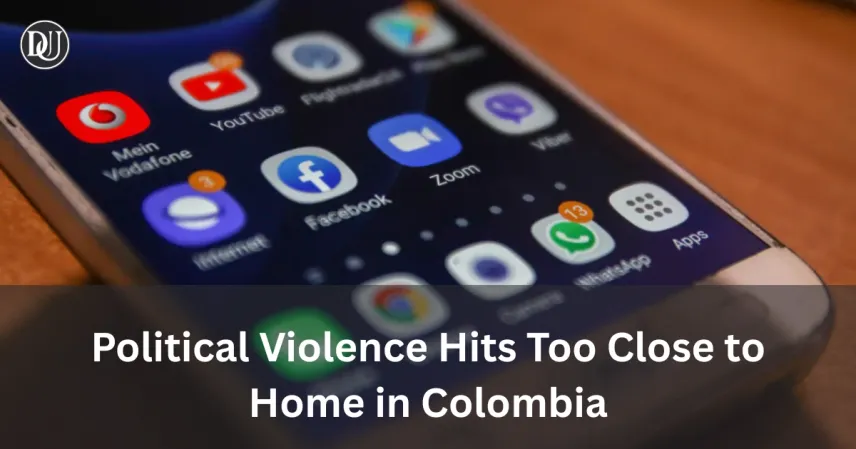I was just reading something that really made me pause and think about what's actually on my phone. You know how we all just download apps without a second thought? Well, turns out, some of those innocent-looking apps could be doing some seriously sketchy stuff in the background, like stealing your data or even emptying your bank account. Seriously, it's enough to make you paranoid! So, I figured we should chat about it because, let's be honest, nobody wants their personal info floating around out there, right?
Here's What's Really Going On Behind the Scenes
So, the article I read highlighted a bunch of apps that security researchers have flagged as downright dangerous. We're talking about malware dressed up as helpful tools, games, or even fake security apps. These aren't just annoying; they can be incredibly harmful. Picture this: you download what you think is a cool new game, and suddenly, it's got access to your contacts, your messages, or even your banking app! That's what some of these 'trojan horse' apps are designed to do. They sneak onto your device, often by pretending to be legitimate, and then they start doing their dirty work.
- Financial Trojans: These are the really scary ones. They target your banking apps, trying to steal your login credentials or even trick you into authorizing fraudulent transactions. It's like having a digital pickpocket in your pocket!
- Spyware: Some apps are designed to snoop on your private data – your call logs, text messages, photos, you name it. It's a complete invasion of privacy, and honestly, it feels super creepy.
- Adware/Malware: While not always directly stealing your data, these can bombard you with intrusive ads, slow down your phone, and make it generally unusable. Plus, they can be a gateway for more serious infections.
The weirdest part? Many of these apps actually make it onto official app stores, like Google Play, even after Google's checks. It's a constant cat-and-mouse game between the good guys (security researchers and app store defenders) and the bad guys (cybercriminals). So, while app stores do a lot to protect us, it's clear we can't just blindly trust everything we download. We've got to be smart about what we're putting on our phones.
| App Name | Package Name |
|---|---|
| Suiet Wallet | co.median.android.ljqjry |
| SushiSwap | co.median.android.pkezyz |
| Raydium | co.median.android.epwzyq |
| Hyperliquid | co.median.android.epbdbn |
| BullX Crypto | co.median.android.braqdy |
| Pancake Swap | co.median.android.djrdyk |
| OpenOcean Exchange | co.median.android.ozjjkx |
| Raydium | co.median.android.pkzylr |
| Hyperliquid | co.median.android.djerqq |
| Suiet Wallet | co.median.android.noxmdz |
| Suiet Wallet | co.median.android.epeall |
| SushiSwap | co.median.android.brlljb |
| Meteora Exchange | co.median.android.kbxqaj |
| BullX Crypto | co.median.android.ozjwka |
| Suiet Wallet | co.median.android.mpeaaw |
| Hyperliquid | co.median.android.aaxblp |
| Raydium | co.median.android.yakmje |
| Hyperliquid | co.median.android.jroylx |
| Pancake Swap | co.median.android.pkmxaj |
| Harvest Finance blog | co.median.android.ljmeob |
| Hyperliquid | co.median.android.epbdbn |
| Raydium | co.median.android.epwzyq |
What This Actually Means for Your Digital Life
This whole situation really got me thinking about our digital habits. We rely on our smartphones for pretty much everything these days – banking, communicating, working, entertaining. So, having a 'dangerous' app on there isn't just an inconvenience; it could seriously compromise our financial security, our privacy, and even our peace of mind. What does this mean for us? It means we need to be more vigilant than ever before.
It's like leaving your front door unlocked. You wouldn't do it, right? Similarly, giving permissions to shady apps is like handing over the keys to your entire digital life. Trust me on this, it's not worth the risk. Regularly checking your installed apps, reviewing permissions, and being super cautious about what you download from unofficial sources or even unfamiliar developers is absolutely essential. It's our responsibility to safeguard our own digital spaces.
Bottom Line: Take Back Control of Your Phone's Security!
So, the takeaway here is pretty clear: be very, very careful about the apps you install. Always question why an app needs certain permissions (does a flashlight app really need access to your contacts?). Stick to official app stores, and even then, do a quick search about the developer and read reviews. It’s a bit of effort, I know, but it’s a small price to pay for your digital safety. Have you ever downloaded an app that turned out to be dodgy? What's your top tip for staying safe online? Share your thoughts!









